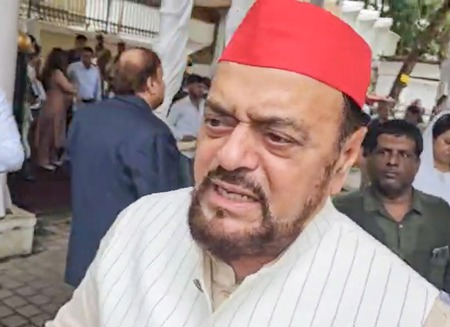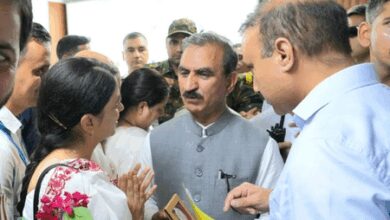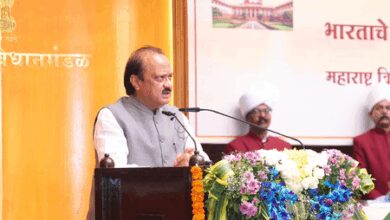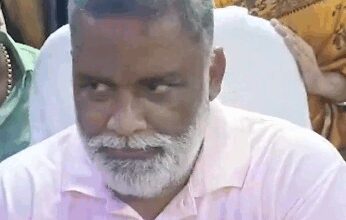Abu Azmi slams Maharashtra Public Security Bill, warns of misuse against Dalits, Muslims

Mumbai, July 11 (IANS) As the Maharashtra Assembly passed the Maharashtra Public Security Bill, 2024, aimed at curbing unlawful activities by Left Wing Extremist (LWE) organisations and similar groups, Samajwadi Party’s Maharashtra President Abu Asim Azmi on Friday launched a scathing attack on the government, warning that the law could be dangerously misused to suppress dissent and target marginalised communities.
Speaking to IANS, Azmi said that while the intent to curb extremism may be valid, the potential misuse of such sweeping laws by authorities makes it a threat to democracy and civil liberties.
“This Bill, in the name of fighting Maoism, gives excessive power to the police, and such powers have historically been misused. We have seen what happened with TADA. So many innocent people, including myself, were booked under it without reason,” Azmi said, referring to the now-repealed Terrorist and Disruptive Activities (Prevention) Act.
He added, “We are protesting this Bill not because we support extremism, but because we fear its misuse. When big movements happen against the government, when Dalits raise their voices, or when marginalised communities organise, stories will be fabricated. Someone will say a Maoist attended the event, even if the organisers have no idea who came. Innocent people will be arrested, and it will take years to prove their innocence.”
Azmi also reacted strongly to Maharashtra Chief Minister Devendra Fadnavis’ assurance that the Bill will not be misused.
“How long will Fadnavis remain Chief Minister? Power changes. He can say what he wants now, but the reality is different. Just look at the Enforcement Directorate (ED). How many people were arrested, kept in jail for years, and then released without any conviction? These laws are political weapons.”
According to Azmi, such laws become tools for those in power to silence the Opposition.
“Any party in power can misuse these laws. It’s a dangerous precedent. Protest, dissent, and public organising are being criminalised under the guise of national security,” he warned.
Azmi added by reiterating that the Maharashtra Public Security Bill is a step toward silencing those who oppose the ruling party.
“Wherever people speak up—be it against injustice, corruption, or discrimination, this law can be used to crush them. Dalits, Adivasis, Muslims, students, activists, anyone can be labelled a Maoist. It’s a dangerous tool in the hands of the state,” he warned.
Azmi further reacted to the Maharashtra government’s proposed move to introduce an anti-conversion law and investigate unauthorised churches. Calling the move discriminatory and based on a distorted narrative, he argued that forced conversions are not as widespread as claimed and that the reality on the ground is far more nuanced.
“People converting their religion usually do so voluntarily. During my childhood in Azamgarh, sanitation workers, who were completely ostracised, were treated with humanity by Christian missionaries. They ate at their homes, provided healthcare and education, and instilled dignity in their lives,” he recalled.
Azmi said such efforts often inspire people to embrace a new faith voluntarily.
“Yes, if conversion is done forcibly, the government must act. But I can say with confidence, there is no organisation in India actively forcing conversions or receiving foreign funds to do so. What exists is voluntary acceptance, often out of admiration for the service and love shown by religious workers in rural areas.”
He also warned that the current narrative is being twisted to harass minorities.
“When someone converts, especially from Hinduism, these so-called nationalists threaten them. They force them to claim they were pressured. This is harassment. The Constitution guarantees the freedom to propagate one’s religion. What’s happening now is unfair and unconstitutional,” he said.
Reacting to BJP leader Nitesh Rane’s controversial statement that the Islamic call to prayer (Azan) should be delivered in Marathi, Azmi dismissed the suggestion as ignorant and inflammatory.
“Urdu is an Indian language. It was born here. It is not foreign. If you look at historical documents, including the FIR of Mahatma Gandhi’s assassination, it was written in Urdu. Urdu was once the language of administration,” he said.
“Nitesh Rane has no right to tell us how we should pray or in what language we should recite our scriptures. Should we now tell Hindus to stop reciting in Sanskrit? This is pure interference in religion, and it’s unacceptable.”
Azmi added that such statements are part of a larger pattern to marginalise religious minorities and inflame communal tensions.
“Why drag religion into language politics? People have the right to pray in their own language. That’s guaranteed by the Constitution. Stop trying to dictate how people practice their faith,” he said.
–IANS
jk/dan




